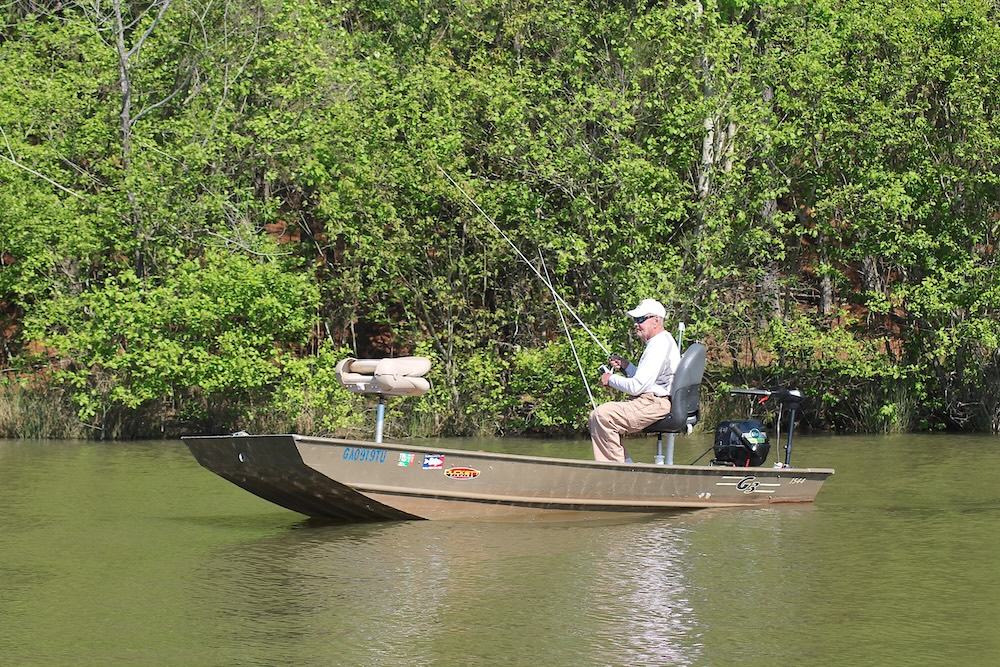HCWA Offering Winter Fishing and Winterization Tips
While the colder weather this time of year drives some people indoors, the Henry County Water Authority (HCWA) is offering opportunities for the public to enjoy outdoor recreation by fishing at its reservoirs on select weekends this winter, despite the falling temperatures. In addition, the Authority is encouraging its customers to prepare for potential freezing conditions by weatherizing their properties, offering tips to help them avoid water line leaks and pipe bursts.
 The Tussahaw Reservoir and Upper Towaliga Reservoirs will re-open this weekend (Dec. 8-10), as well as the weekends of Jan. 12-14, and Feb. 9-11. To fish HCWA reservoirs, anglers must obtain a Reservoir Use Permit ($50 for one year or $85 for two years) at the Authority’s Headquarters, located at 1695 Highway 20 West in McDonough, during operating hours of 8:00 a.m. to 4:30 p.m. Citizens with disabilities, senior citizens, and military active duty or veterans can purchase a Reservoir Use Permit at a discount ($25 for one year or $45 for two years). Permits are valid for an entire calendar year from the date of purchase, and those with a permit can bring a guest for free. The 2024 Regular HCWA Fishing Season, featuring additional access to reservoirs, will begin the first weekend in March.
The Tussahaw Reservoir and Upper Towaliga Reservoirs will re-open this weekend (Dec. 8-10), as well as the weekends of Jan. 12-14, and Feb. 9-11. To fish HCWA reservoirs, anglers must obtain a Reservoir Use Permit ($50 for one year or $85 for two years) at the Authority’s Headquarters, located at 1695 Highway 20 West in McDonough, during operating hours of 8:00 a.m. to 4:30 p.m. Citizens with disabilities, senior citizens, and military active duty or veterans can purchase a Reservoir Use Permit at a discount ($25 for one year or $45 for two years). Permits are valid for an entire calendar year from the date of purchase, and those with a permit can bring a guest for free. The 2024 Regular HCWA Fishing Season, featuring additional access to reservoirs, will begin the first weekend in March.
HCWA Reservoir Use Permit customers and guests must sign a waiver/release form and adhere to all rules and regulations established by the HCWA and Georgia Department of Natural Resources for fishing on Georgia waters. They also must possess an active Georgia Fishing License.
This Winter, the HCWA also is encouraging customers to weatherize their homes and businesses, especially exposed water lines and irrigation systems, to prevent leaks or pipe bursts because of freezing temperatures.
Some simple water-saving weatherization tips for residents and property owners include:
* Insulate exposed pipes with wraps or tapes available at home improvement stores, especially those pipes passing through unheated spaces and the outdoors.
* Consider adding or supplementing insulation to water heaters.
* Drain irrigation systems, since the tips of sprinkler heads and portions of sprinkler systems often continue to hold water, even when inactive.
* Disconnect garden hoses from all outdoor water faucets (spigots), allowing water to drain completely, and store hoses in a place with consistent (warmer) temperatures.
* If an outside faucet is not frost free, find the shut-off valve on the pipe that feeds that faucet and turn it off; then, turn the outside faucet on and let it drain completely. Spigot covers also can help protect outdoor faucets from freezing temps.
* Winterize air conditioning units as well, insulating exposed pipes and hoses (after cutting the power to the outdoor condensing/compressor unit for safety); consider an AC unit cover, too.
* Remove window air conditioning units and insulate those areas accordingly.
* Clean gutters, so winter rains and melting snow can drain.
* If you wake up on a particularly icy morning and you do not have water inside your home, you may have a frozen pipe. Once the sun comes out, the line should thaw on its own; but, if you are leaving the property for the day, make sure that all faucets in the house are turned off to prevent possible water damage when the line thaws.
* When leaving your home or office for an extended period, turn the temperature down to 55 degrees, rather than turning the heat off completely.
* Should a pipe burst due to freezing or under any other circumstances, always know how to shut off the main water line servicing the home or property.
For additional public information on fishing and boating at HCWA reservoirs, as well as water conservation and wise water use, please visit the Authority’s website at www.hcwa.com.
#
Media Contact:
Chris Wood, Ph.D.
P: 770-757-1681
E: chris@jwapr.com or john.wood@gcsu.edu
